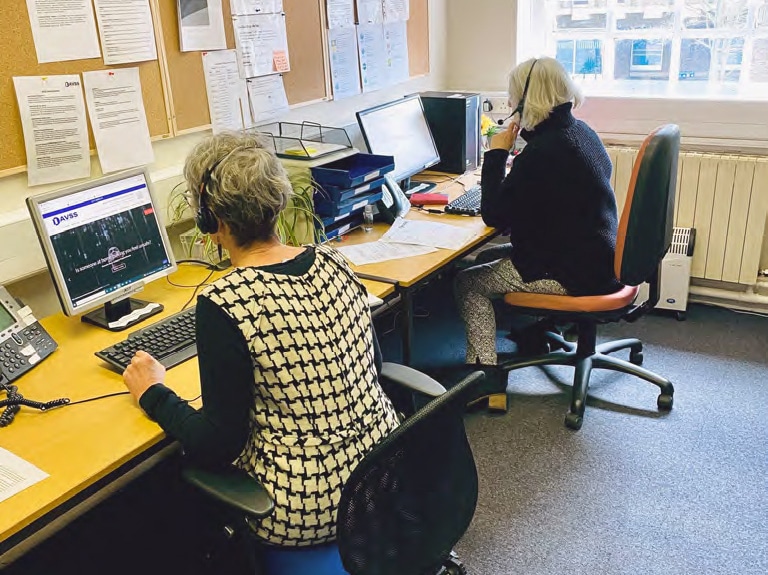Volunteers for DAVSS (Domestic Abuse Volunteer Support Service) saw their hours increase by 70 per cent during the pandemic, the organisation has said as it starts a recruit drive to keep up the service.
The charity offers helpline and face-to-face support to both men and women who are victims of abuse, as well as pro bono legal assistance and recovery programmes in Tunbridge Wells, Tonbridge & Malling and Sevenoaks.
But the charity, which was founded in 2011, has never been busier than over the last two years, DAVSS CEO Henu Cummins told the Times.
Henu Cummins
“We knew as soon as lockdown was announced that it wouldn’t be good,” she said.
“With Covid, we saw an exponential rise in demand for our services. A lot of people were in isolation with the perpetrator and it exacerbated an already tense situation.
“When they called us, the abuse had become frequent and intense.”
Covid-19 restrictions on meetings had also affected the charity’s ability to recruit new volunteers, she said.
“Normally we are going to lots of different events throughout the year, and we would have a poster calling for volunteers at every one of those sessions, but we’ve literally been online.”
Despite the pressure, DAVSS volunteers rose to the challenge by using the homeworking potential of pandemic restrictions to offer a huge increase in time and contact with those who needed help.
“Our volunteers gave 70 per cent more hours during the whole 18-month period.
“And over the last nine months our unpaid volunteers provided the cash equivalent of about £500,000 worth of service – based on average Kent earnings,” she added.
The charity has made investments in digital infrastructure, phone expenses and support thanks to recent funding, including a grant of almost £65,000 from Police and Crime Commissioner [PCC] Matthew Scott in 2020.
“He’s a big supporter,” Ms Cummins said.
Now she is calling for a new round of volunteers, but stressed that even though the charity was responding to increased need, it was not trying to grow too fast.
“This is not a rapid scale-up for us. Every year, we recruit 20 new volunteers.
“Some of our volunteers have been with us since the very beginning, which is a testament to how rewarding it is. And, on the whole, our volunteers only leave if they have a change of circumstances.”
WHO MAKES A DAVSS VOLUNTEER?
The DAVSS volunteer model means victims of domestic abuse are contacting people who give their time out of a sense of personal commitment and concern, explained CEO Henu Cummins.
“No experience is necessary. We welcome anyone as long as they have an affinity for people. We will carve out a role for them.
“Volunteers have a way of engaging with survivors,” she stressed.
“I am always taken aback by people’s generosity and goodwill. They don‘t do it for thanks. They do it because domestic abuse is a blight on society. We can make a real difference to someone’s life.”
And, in return for volunteers’ engagement and commitment, DAVSS offers extensive support.
“We help the volunteers to volunteer. It is important we are flexible when looking for volunteers.
“We make sure they have a manager, a mentor and a supervisor, and a monthly meeting. Everyone is well supported.
“Some of our volunteers do have personal experience of domestic abuse. For anyone who volunteers, we say they should have stopped accessing help two years ago, so as not to re-traumatise and re-victimise them in the process.
“That is a minimum of two years,” she added. “It is on a case -by-case basis. We have a rigorous vetting process.
“We have an eight-week accredited training programme and about six months of shadowing on the job. They have a mentor and a buddy – sometimes the same person, sometimes separate people – for example when they want to share ideas, want support, or want someone to vent to,” continued Ms Cummins.
But the community and location also play their part in supporting volunteers, she added.
“I have worked across lots of different local authorities in my career, but these three local authorities (Tunbridge Wells, Tonbridge & Malling and Sevenoaks) really pay attention to the voluntary sector,” she said.








